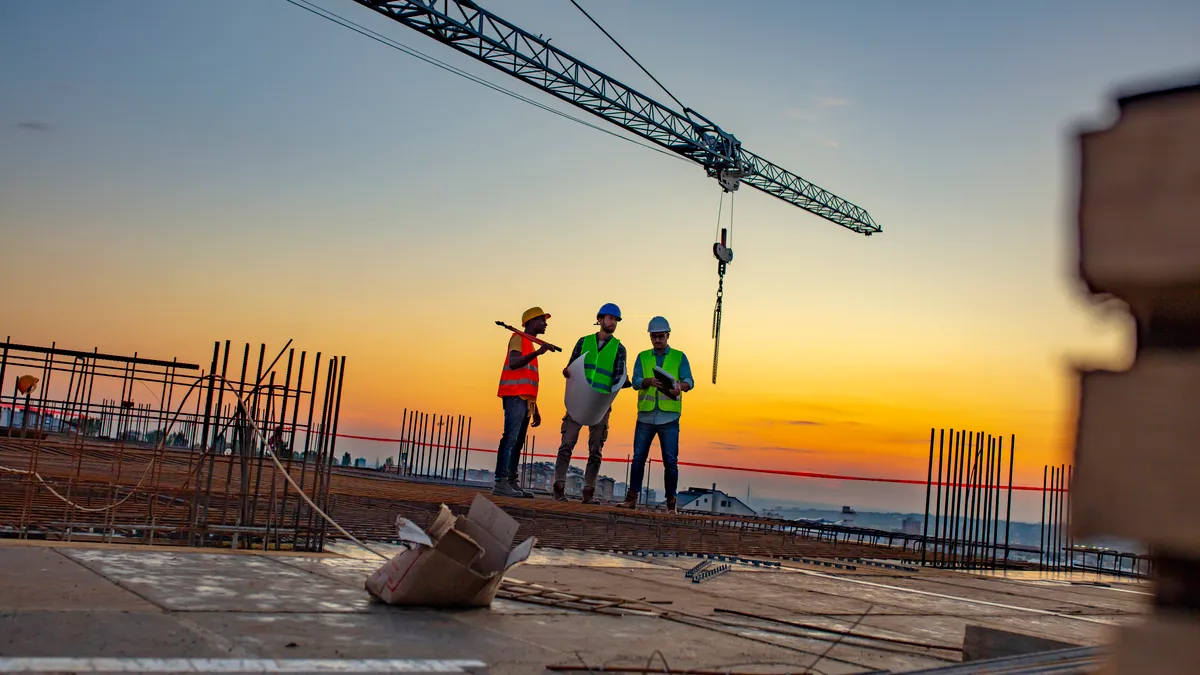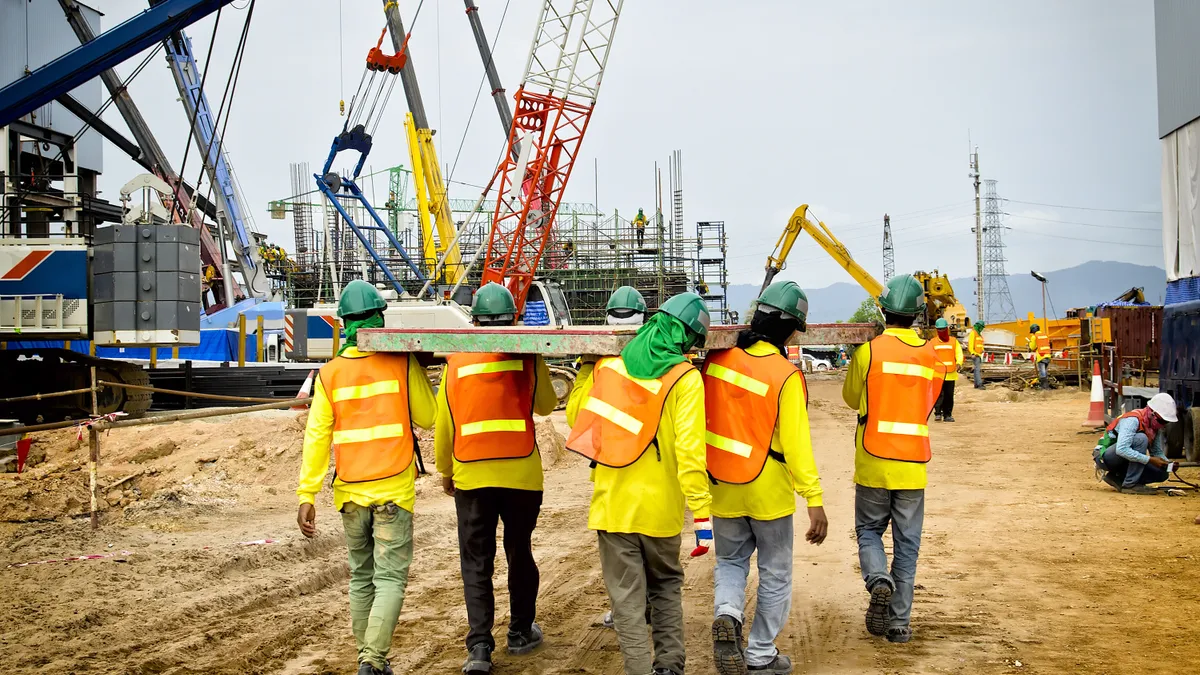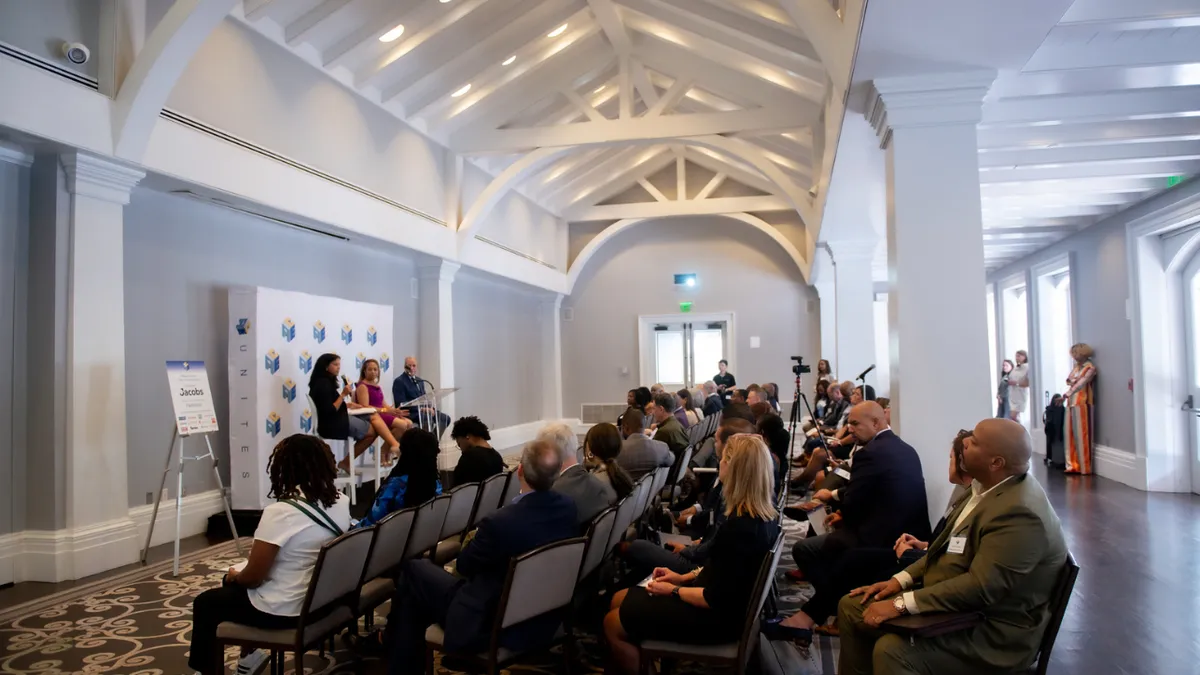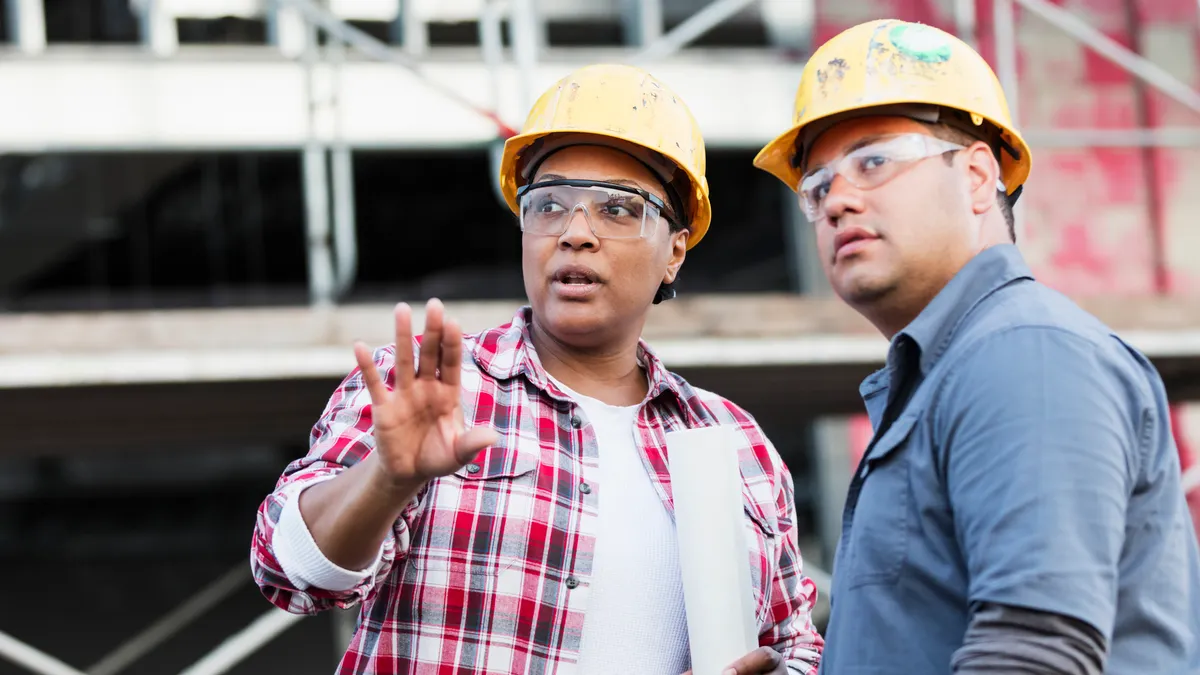Sergio Terreros wants more Hispanic workers to become construction owners. And he has some big ideas on how to make that happen.
As the new head of the National Hispanic Contractors Association, Terreros brings a marketer’s perspective to an industry that has struggled to sell itself to a younger generation.
Before taking the helm of the Houston-based organization in August, he worked with companies such as Bobcat and Caterpillar on Hispanic marketing initiatives via his advertising agency, 11/11 Media.
A former tradesworker, his goal is to help Hispanic contractors transition from the jobsite to the front office.
While 33% of construction employees are Hispanic, according to the Bureau of Labor Statistics, just 14% of GCs fall into this category, according to career site Zippia. Construction Dive spoke with Terreros about his vision for addressing that disparity.
Editor’s Note: This interview has been edited for brevity and clarity.
CONSTRUCTION DIVE: What do you like about construction? What drew you to the trades?
SERGIO TERREROS: I tried concrete, I tried framing and I really liked framing. You’re building. When you drive by a building that you built or you made, you feel really proud about your past work. I still do it.
What are your goals for the National Hispanic Contractors Association?
My goal is to help create more Hispanic-owned construction companies within the industry.
Often, for Hispanic tradesworkers, if they’re on the labor side, they stay there.
Or if they do have their own company, they set it up and then retire. No one is there to keep it alive, so it shuts down and we have fewer Hispanic construction companies in the market.
At NAHICA, we have programs to help Hispanic tradespeople understand more of the business side of construction.
Hispanic contractors have been seeking that information in the past few years. So we developed a program to prep them on how to bid on projects, how to estimate, how to do a takeoff.
Basically, everything they need to know so they have a better opportunity for success.
What made empowering the labor force your No. 1 priority?
When you talk to our members, they are hungry for knowledge.
They want to be construction professionals who know how to be competitive, not get ripped off and make real money.
And we have members who are doing that. We have a member in San Antonio who recently went from making a million dollars a year to making a million dollars a quarter.
The construction industry needs more general contractors, specifically more Hispanic general contractors. That’s one of the things that will make a difference in the industry.
How will your organization help address the labor shortage in the industry?
Well, we encourage more people to join the construction industry. One other thing is that we need to get involved in the government. Immigration reform is going to be needed if we want to stay on track with other projects. So we'll be advocates for that.
We need to bring more young people into the construction industry.
The message in society is if you want to be successful, you should be a doctor or a lawyer.
But an electrician or plumber, they're making $150,000 a year, more money than people think.
We need to get that message out there, so they can decide to join construction.
This story was updated to include demographic data on general contractors.


























